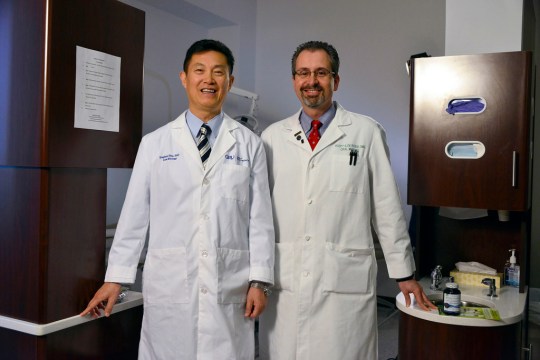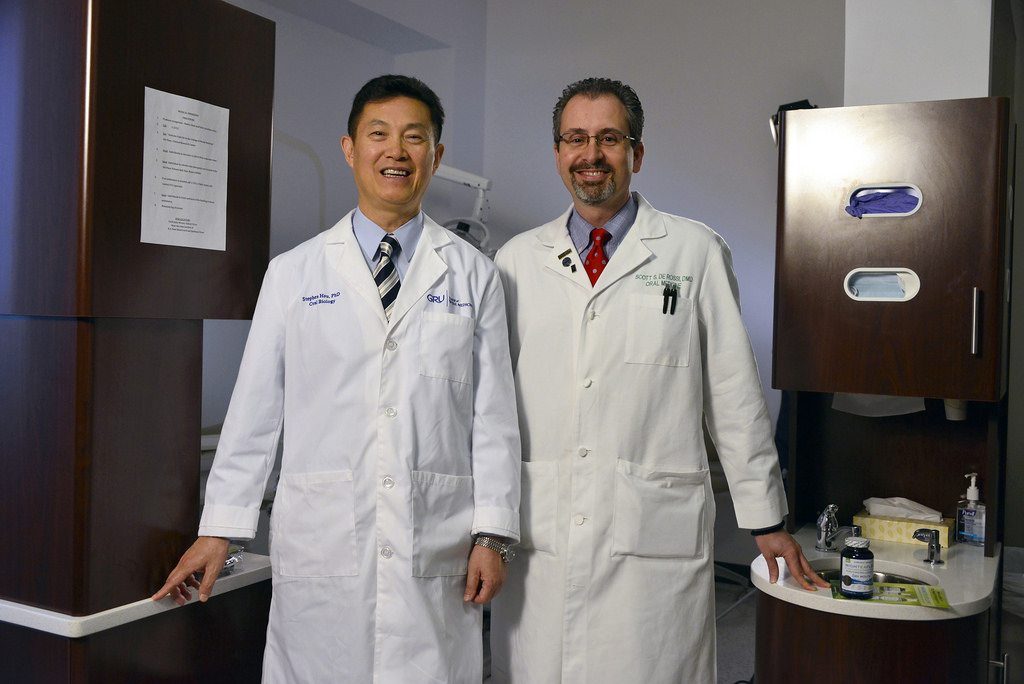
Millions of patients suffer from dry mouth, a condition generally caused by a decrease in saliva.
Everyone’s mouth occasionally feels dry, and for many it’s simply a matter of being thirsty. For a long time, there was little public awareness of dry mouth as a chronic health problem. But that has changed in recent years.
Dry mouth is frequently a side effect of medication and cancer therapy. It can range from being simply a nuisance to having a major impact on general health and the health of teeth, as well as appetite and enjoyment of food, according to the Mayo Clinic.
A product developed by researchers at Georgia Regents University in Augusta may help dry mouth sufferers.
The GRU researchers say a clinical trial showed their lozenge containing green tea antioxidants produced a fourfold increase in saliva.
Looking at the data
Dr. Scott DeRossi, chairman of oral health and diagnostic sciences in the College of Dental Medicine, says the formula “increases a patient’s salivary flow statistically and clinically to a significant level without any adverse side effects.”
DeRossi and Dr. Stephen Hsu, professor of oral biology in the College of Dental Medicine, co-authors of the study, presented their findings in April at an international gathering of oral medicine professionals in Orlando.
Researchers asked 60 patients with dry mouth symptoms to consume one lozenge every four hours. Half received lozenges containing the patented MighTeaFlow formula, and the other half received a placebo.
After eight weeks, the group receiving the active lozenges experienced a 419 percent increase in “unstimulated” saliva production, such as while resting or sleeping. The same group also experienced a 218 percent increase in “stimulated” saliva production, such as while chewing.
The group receiving the placebo experienced no significant change in saliva production.
Marketing has begun
The products, which include chewing gum, rinse, oral spray, and the lozenges used in the study, are already on the market as over-the-counter items available at such websites as http://www.camellix.com and http://www.amazon.com.
The researchers plan larger-scale clinical trials next, along with possibilities of developing new prescription drugs based on the formula.
Hsu and DeRossi are encountering more patients with dry mouth symptoms, and say the increase in public awareness has been gradual.
“People are living longer with more chronic diseases and more medicines, resulting in more patients with dry mouth complaints and complications,” DeRossi said. “Ongoing education is needed to increase awareness of the problem.”
The dry mouth products were developed and patented at the GRU Life Sciences Business Development Center in the Office of Innovation Commercialization, which takes research from the laboratory to the marketplace.

